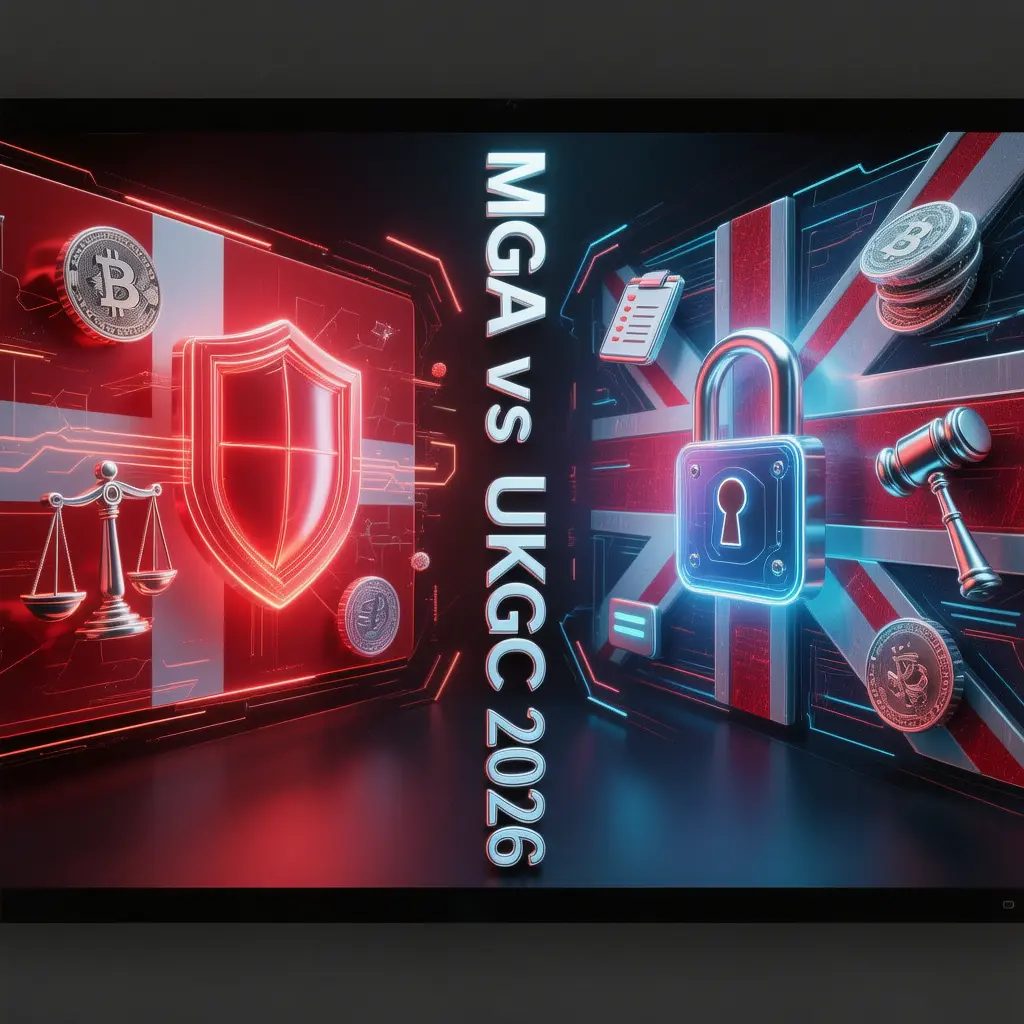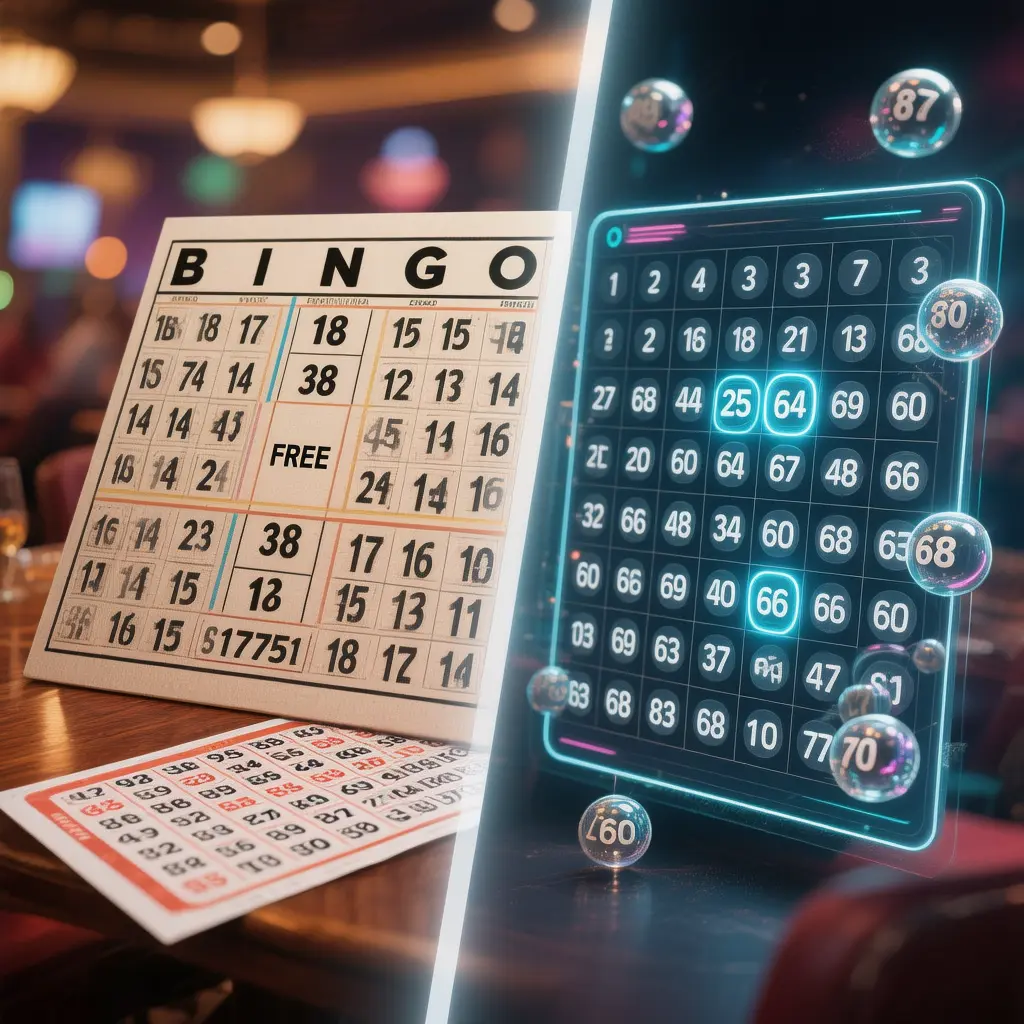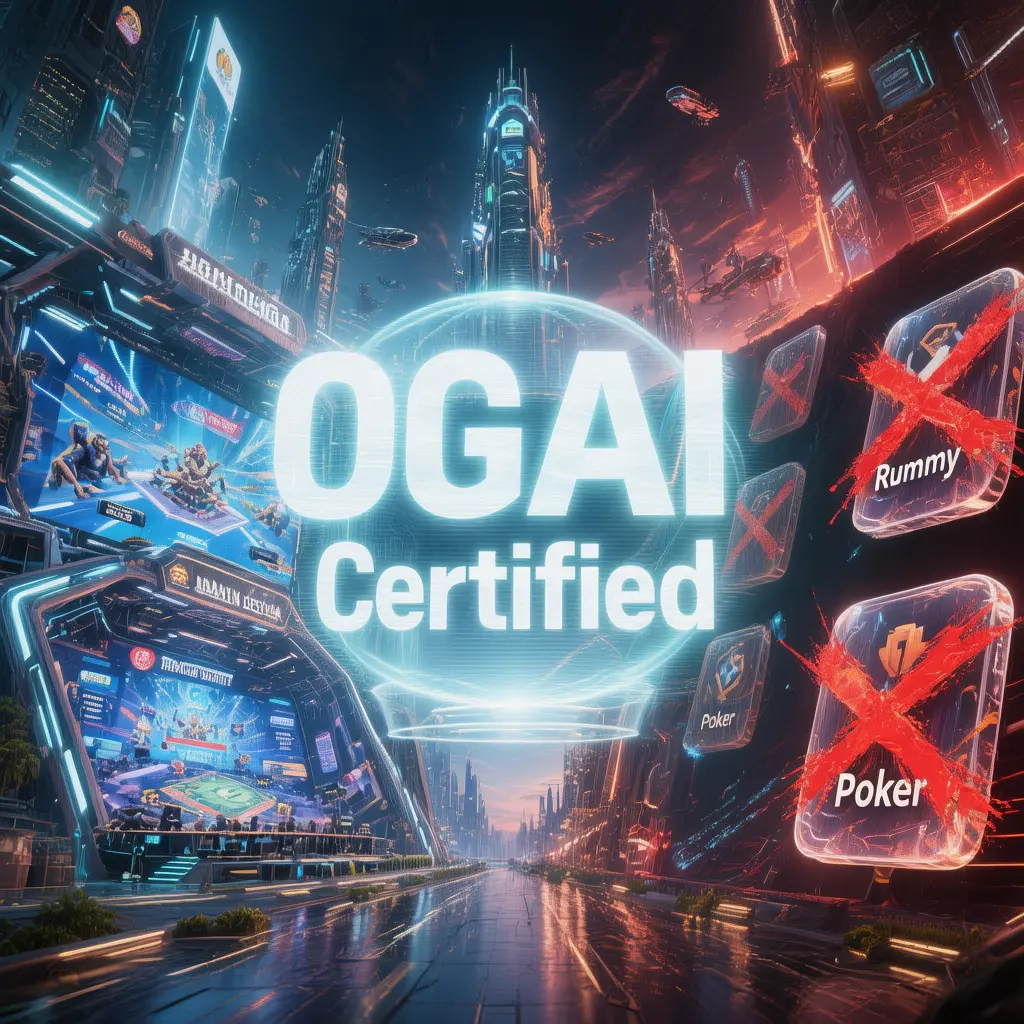When you’re looking at the MGA vs UKGC, you’re comparing two of the most respected regulators in online gambling. The main difference is their focus and strictness. The UK Gambling Commission (UKGC) is known for its iron-clad rules, offering the highest level of player protection but only for the UK market.
On the other hand, the Malta Gaming Authority (MGA) is a global leader, providing a strong, reputable license with more flexibility for operators targeting international markets.
For players, a UKGC license means stricter safety nets, while an MGA license still guarantees a secure and fair environment. This guide will explain everything you need to know about their licensing requirements, advertising controls, and more.
Why Do Gambling Licenses Like MGA and UKGC Even Matter?
In an online world filled with countless casinos, a license is your first sign that a site is trustworthy. Think of it as a seal of approval. Regulators like the MGA and UKGC exist to make sure the games you play are fair, your money is safe, and the casino operates legally. According to industry insights, these licenses are “symbols of trust, compliance, and legitimacy” in a multi-billion-dollar global industry . Without them, players would have no protection against fraud or unfair treatment. These bodies enforce rules on everything from game fairness RNGs to preventing crime, creating a safer space for everyone.
A Quick Look at the Two Giants: MGA and UKGC
While both the MGA and UKGC are top-tier regulators, they were created for different purposes and serve different markets. Understanding their backgrounds helps explain their unique approaches to regulation.

Both the MGA and UKGC are key players in regulating the global online gaming industry.
The Malta Gaming Authority (MGA) – The Global iGaming Hub
Founded in 2001, the Malta Gaming Authority (MGA) quickly became a powerhouse in the online gambling world. As one of the first regulators to oversee online casinos, the MGA established Malta as the “;European home of iGaming” . Its reputation is built on a balanced approach: it encourages innovation while demanding strict compliance with laws. This makes the MGA license guide a popular choice for operators who want to reach a global audience, not just one country. They offer different types of licenses for various activities, from online casinos to sports betting, making them a flexible yet highly respected option.
The United Kingdom Gambling Commission (UKGC) – The Guardian of the UK Market
The UK Gambling Commission (UKGC) was established under the Gambling Act of 2005 to regulate all commercial gambling in Great Britain. If an operator wants to offer services to players in the UK, a UKGC license is non-negotiable. The UKGC is widely considered the strictest regulator in the world . Its primary mission is to keep gambling crime-free, ensure fairness, and protect children and vulnerable people. While its focus is the UK, its tough standards have set a benchmark for regulators worldwide. The UKGC license guide is a blueprint for maximum player safety.
MGA vs UKGC: A Head-to-Head on Player Protection
This is where the differences between the two regulators become crystal clear. While both prioritize player safety, their methods and the level of protection offered vary significantly. This is a key factor for players wondering which license to trust.

Strong regulation ensures players can enjoy gaming in a fair and secure environment.
How the UKGC Puts Players First
The UKGC offers what many consider the gold standard in player protection. Its rules are designed to create a robust safety net for anyone gambling in the UK.
- Mandatory Self-Exclusion: All UKGC-licensed operators must integrate with GAMSTOP, the national self-exclusion scheme. This allows players to block themselves from all UK gambling sites in one go.
- Strong Dispute Resolution: If a player has a complaint they can’t resolve with a casino, the operator must offer a free Alternative Dispute Resolution (ADR) service. This gives players a formal and fair way to settle disputes.
- Strict Financial Safeguards: The UKGC mandates that operators keep player funds in separate, protected accounts. This means your money is safe even if the company goes out of business.
- Affordability Checks: The UKGC is increasingly focused on affordability checks to ensure players are not gambling more than they can afford, a key part of its responsible gambling mandates.
The MGA’s Approach to Keeping Players Safe
The MGA also provides strong protections, but with a slightly different philosophy that gives operators more flexibility.
- Dispute Resolution Process: With an MGA-licensed site, you typically must resolve disputes with the operator first. The MGA will step in if the issue is serious or if the operator fails to handle it properly, but the process is less centralized than the UKGC’s ADR requirement.
- High Standards of Fairness: MGA-licensed platforms must still meet very high standards for game fairness and security. They are regularly audited to ensure compliance.
- Player Support: While not as rigid as the UKGC, the MGA requires operators to provide players with tools to manage their gambling, such as setting deposit limits and self-exclusion options.
- Player Compensation: The MGA has provisions for player compensation schemes in the event an operator becomes insolvent, offering a layer of financial security.
The Rules of the Game: Advertising Controls and Responsible Gambling (RG)
How casinos can advertise and what tools they must offer for responsible gambling are major points of difference in the MGA vs UKGC comparison. These rules directly impact the player experience and the operator’s responsibilities.
UKGC’s Strict Advertising and RG Mandates
The UKGC has some of the most rigid gambling advertising rules in the world. The goal is to prevent ads from appealing to children or encouraging irresponsible behavior. The UK ad rules for casinos explained simply are: be responsible, or face huge fines.
- Ad Placement Rules: Ads cannot be shown on websites or during TV shows that are targeted at under-18s.
- Fair Bonus Terms: All significant terms and conditions for bonuses must be displayed clearly with the offer. No more hiding things in the fine print.
- Safer Gambling Messaging: All ads must include safer gambling messages and links to resources like GamCare.
- Mandatory RG Tools: Operators must provide easy-to-use tools for setting deposit limits, session time reminders, and cool-off periods. This is a core part of the RG compliance checklist.
MGA’s Flexible Framework for RG and Ads
The MGA also takes responsible gambling seriously but allows operators more freedom in how they meet their obligations. The MGA guidance on RG tools is less prescriptive than the UKGC’s.
- Focus on Principles: The MGA sets out principles for responsible advertising, such as not targeting vulnerable players, but the specific rules are less detailed than the UKGC’s.
- Operator-Led Implementation: MGA-licensed operators are expected to develop their own effective responsible gambling policies and tools. While the MGA audits these, the approach is less “;one-size-fits-all.”
- Player Choice: The emphasis is on providing players with the options to control their gambling, but participation in a national scheme like GAMSTOP is not a requirement for non-UK players.
The Burden of Compliance: AML, Costs, and Timelines
For operators, choosing a license is a major business decision. The costs, time, and compliance requirements for the MGA vs UKGC are vastly different and have a huge impact on how a casino can operate.
AML Obligations and Financial Scrutiny
Both regulators have strict Anti-Money Laundering (AML) rules, but the UKGC’s are notoriously demanding.
- UKGC: Operators face intense scrutiny. The AML obligations under UKGC include rigorous ‘;Source of Funds’ (SoF) and ‘Source of Wealth’ (SoW) checks on players. They must have systems to detect and report suspicious activity (SAR filing) and conduct enhanced due diligence (EDD) on high-risk players.
- MGA: The MGA also has robust AML compliance rules aligned with EU directives. However, the implementation can be less burdensome for operators compared to the UKGC’;s granular requirements. The focus is on a risk-based approach.
License Costs and Timelines
Here lies one of the biggest practical differences for operators.
- MGA: Generally seen as more cost-effective. The licensing fees are lower, and the approval process, while thorough, is often faster than the UKGC’;s. This makes it an attractive option for startups and established brands looking to expand globally.
- UKGC: The most expensive and time-consuming license to obtain. High application fees, annual fees, and the cost of meeting its strict compliance standards make it a significant investment. However, it grants access to the highly profitable UK market.
Stance on Cryptocurrency
The regulators’ views on new technologies like crypto also set them apart.
- MGA: The MGA has a forward-thinking approach. It has a specific framework for allowing operators to use cryptocurrencies, though it comes with its own set of strict rules and approvals.
- UKGC: The UKGC is not crypto-friendly. It does not permit its licensees to accept cryptocurrency payments directly, citing concerns over AML and player protection.
| Feature | Malta Gaming Authority (MGA) | UK Gambling Commission (UKGC) |
|---|---|---|
| Primary Focus | International / European Markets | United Kingdom Market Only |
| Player Protection | Strong | Very Strong (Highest Level) |
| Advertising Rules | Flexible, principle-based | Very Strict and detailed |
| Responsible Gambling | Flexible implementation | Mandatory tools & GAMSTOP integration |
| Dispute Resolution | Operator-led, with MGA as an escalation point | Mandatory free ADR service for players |
| License Cost | Medium | High |
| Approval Time | Moderate | Slow and complex |
| Crypto Acceptance | Yes, with specific approval | No |
| Reputation | High (Global Gold Standard) | Very High (Strictest in the World) |
A New Era of Cooperation: The MGA and UKGC MoU
Despite their differences, the MGA and UKGC recognize they face common challenges in a global industry. In a significant move, they have formalized their cooperation by signing a Memorandum of Understanding (MoU). According to a press release from the MGA, this agreement aims to “enhance the exchange of information and intelligence” to better protect consumers and prevent crime .
UKGC CEO Andrew Rhodes and MGA CEO Charles Mizzi both emphasized that this collaboration will help them tackle issues like illegal gambling and strengthen standards in areas like AML and sports betting integrity. This shows that while they regulate different markets, they are united in their goal to make gambling safer for everyone.

Final Verdict: Which License Comes Out on Top in the MGA vs UKGC Debate?
There’s no single “best” license—it all depends on who you are and what you’re looking for.
For Players:
- If you are in the UK, you should only play at UKGC-licensed sites. The level of player protection, from mandatory self-exclusion to guaranteed dispute resolution, is unmatched.
- If you are outside the UK, an MGA-licensed casino is one of the safest casino licenses you can find. It offers excellent protection, fair gaming, and reliable oversight.
For Operators:
- The MGA is the ideal choice for businesses aiming for a broad international or European reach. Its cost-effective, flexible, and highly reputable license is perfect for growth and innovation.
- The UKGC is the necessary, albeit expensive, key to unlocking the lucrative UK market. It’s best suited for established operators who can handle the high costs and heavy AML burden and compliance demands.
Ultimately, both the MGA and UKGC play a vital role in keeping the online gambling industry safe and responsible. Their different approaches ensure that both players and operators can find a regulatory environment that fits their needs.
Frequently Asked Questions (FAQs)
Q1: What’s the main difference between MGA and UKGC licenses?
The main difference is their jurisdiction and strictness. The UKGC license is exclusively for the UK market and is known for having the world’s strictest rules, especially for player protection and advertising. The MGA license is for international markets, offering a strong reputation with more flexibility for operators.
Q2: Which license offers stronger player protections?
The UKGC license offers stronger and more comprehensive player protections. This includes mandatory integration with the national self-exclusion scheme (GAMSTOP), required use of third-party dispute resolution (ADR) services, and strict rules on separating player funds.
Q3: Can a casino have both an MGA and a UKGC license?
Yes, many large international operators hold both licenses. They use their MGA license to serve players across Europe and other global markets, and their UKGC license to legally operate in the United Kingdom. This allows them to comply with the specific rules of each jurisdiction.
Q4: Are the AML obligations different under UKGC and MGA?
Yes. While both have strong AML requirements, the AML obligations under UKGC are considered more burdensome. The UKGC requires very detailed ‘Source of Funds’ checks and has a lower threshold for reporting suspicious activity, placing a heavy compliance load on operators.
Q5: Why are the UK ad rules for casinos so strict?
The UK ad rules for casinos explained simply are about social responsibility. The UKGC’;s strict rules are designed to protect vulnerable individuals and prevent gambling from being advertised in a way that could appeal to children or encourage irresponsible behavior. This includes rules on bonus transparency and mandatory safer gambling messages.
Q6: Which license is better for a new casino startup?
For most new startups, the MGA license is a more practical choice. The license costs and timelines are more manageable, and its global reputation provides excellent credibility. The UKGC’s high costs and complex requirements are often too challenging for a new business.
Q7: What are the MGA’s and UKGC’s stances on crypto casinos?
Their stances are very different. The MGA has a specific framework that allows for the use of cryptocurrencies, making it a viable option for crypto casinos that can meet its standards. The UKGC, however, does not permit its licensees to accept crypto payments due to concerns about AML and player safety.
Q8: How do I know if a casino is licensed by the MGA or UKGC?
Legitimate casinos always display their licensing information in the footer of their website. Look for the regulator’s logo and a license number. You can usually click on the logo or number to be taken to the regulator’s official site to verify the license is active and valid. This is the best way to ensure you are playing at a safe, regulated site.
About the Author: Anilgnews
With over 20 years of experience in the iGaming industry, Anilgnews provides expert analysis and in-depth content to help players and operators navigate the complexities of online gambling regulation.
With over 20 years of experience in the iGaming industry, Anilgnews provides expert analysis and in-depth content to help players and operators navigate the complexities of online gambling regulation.




